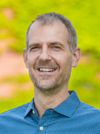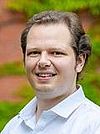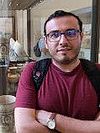
Theoretical Philosophy
Research in Theoretical Philosophy
The starting point of many of our research and teaching activities are philosophical questions that arise from or touch upon the content of scientific disciplines. Accordingly, the individual team members have not only philosophical but also specific scientific qualifications. The various interdisciplinary projects range from inquiries regarding time and space travel to inquiries about music and data science. Projects do not only reflect scientific concepts and methods but also aspects of wider (social and anthropological) relevance.
Philosophy of Time
Time appears in different forms: for instance as physical time, as perceived time, as social-intersubjective time, and as historical time. Therefore, the concept of time has been the subject of constant and seminal discussions in various philosophical sub-disciplines such as metaphysics, philosophy of science, philosophy of mind, ethics, and the historiography of philosophy. Comparatively little attention is paid to the connections and commonalities of these discussions. It is the aim of this project to fill part of this gap. Learn more.
Two projects are concerned with the epistemology of time and, closely related, space. In the context of quantum mechanics, the conditions under which quantum systems can generate something like an objective time scale that is in principle accessible to an observer are investigated. With regard to our currently best spacetime theory --- general relativity --- it is investigated under which conditions and to what degree the empirical content of the theory as well as that of related spacetime theories can be determined by means of clocks (chronometry). Learn more.
For humans, time is something embodied, but how it is actually perceived and experienced is also related to cultural conditions. As time also takes on culturally specific forms, it becomes something local, plural and historical. The aim of the project is to explore the multiple forms of 'human time' (temporalities) within the city of Bremen between 1400 and 1600. The main thesis is that Bremen, and pre-modern cities in general, can be usefully conceptualized for this purpose as 'local time zones'. Within those, time took on locally specific forms for people and was thus experienced and perceived in unical ways. Learn more.
Philosophy of the Individual Sciences
We are interested in philosophical questions concerning the foundations of musicology and also those in the border area between music, musical perception and hearing. There are collaborations with other academic disciplines (especially natural sciences; see essay "Paradoxien beim Hören") and also with artists (see the concert on "hearing time"/"ZeitHören"). Learn more.
How do technology, digital methods and especially space travel change our world and our experiences? What can we learn in space that we couldn't learn "at home" on Earth? Can we address climate change from space, for example? And what new opportunities will arise for disciplines as diverse as pharmacy and architecture if digital methods can be used to redesign both molecules and buildings? And most importantly, what does this mean for our own experiential processes? -- These and similar questions are addressed by our various subprojects.
The project analyses and defends the importance of conceptual-historical knowledge in the individual sciences. This knowledge is of both intrinsic and instrumental value, because it allows one to better understand and, if necessary, actively influence the inner dynamics of what one does as a scientist. Learn more.
Finished Projects
To what extent are statements about the geometry and form (topology) of space and time conventional - precisely not literal assertions about facts, but (as conventionalists claim) expressions of a non-factual element of theory based on human settlements? We examine new approaches to this provocative thesis and its status in present theories of physics.
The terms paradigm and paradigm shift are used inflationarily in science and everyday life, and so there seem to be paradigm shifts in science everywhere. But to what extent is the concept appropriate for disciplines other than physics, at which Kuhn conceived the concept? Learn more.
The search for an empirically adequate theory of quantum gravity - i.e. a theory that should cover a range of validity in which traditionally both quantum mechanical and gravitational aspects are relevant - has been dragging on since the 1930s. The project addresses methodological-conceptual questions in the theory development and pursuit of a theory of quantum gravity: Can candidates be meaningfully tested or compared before the actual experiment? How systematically have the known candidates been found? Have meaningful directions of theory development been disregarded for purely contingent but substantively unjustified reasons? Learn more.
One of our current philosophy of science foci deals with so-called super-empirical theory virtues, i.e., theory criteria beyond empirical adequacy (with emphasis on forms of simplicity and unifying power) that play an important role in theory selection and evaluation. In specific applications to physical theories, we explore various explications of these criteria. The resulting case studies shed critical light on the status of these theory virtues and allow for a nuanced, practice-oriented assessment of these criteria.
Hermann Weyl (1885-1955) is considered one of the most important mathematicians of the 20th century. This project is devoted to his philosophical writings and demonstrates the unity of his thought. In particular, the conditions under which Weyl comes to references to Husserl and German Idealism in the context of his mathematical and physical works are systematically reconstructed. The academic environments from his student days in Göttingen and, in particular, the constellation with the Fichte expert Fritz Medicus during their time together at the ETH Zurich from 1913 to 1930 prove to be important prerequisites. Learn more.
This project is about a critical examination of the different and at the same time successful theoretical approaches in contemporary quantum field theory. The current state of physics is discussed against the background of a symbolic philosophy, which goes back to some extent to the work of Hermann von Helmholtz and Heinrich Hertz and was then developed in particular by Ernst Cassirer. Learn more.
In this project systematic connections of perception, consciousness and time are investigated. In doing so, the work of Leibniz and Husserl is used; however, not for philological-exegetical reasons, but in order to gain (with Wittgenstein's formulation) a "clear representation". For the works of Leibniz and Husserl have strongly influenced later discussions and continue to serve as a useful orientation in many aspects. Learn more.

Norman Sieroka
Institution Philosophie (Phil)
Building/room: SFG 4190
Phone: +49 (0)421 218 67830
E-Mail: sierokaprotect me ?!uni-bremenprotect me ?!.de

Tammo Lossau
Institution Philosophie (Phil)
Building/room: SFG 4180
Phone: +49 (0)421 218 67832
E-Mail: lossau1protect me ?!uni-bremenprotect me ?!.de

Abootaleb Safdari
Institution Philosophie (Phil)
Building/room: SFG 4180
Phone: +49 (0)421 218 67834
E-Mail: asafdariprotect me ?!uni-bremenprotect me ?!.de

Joseph Kretzschmar
Institution Philosophie (Phil)
Building/room: SFG 4180
Phone: +49 (0)421 218 67831
E-Mail: jkretzscprotect me ?!uni-bremenprotect me ?!.de





